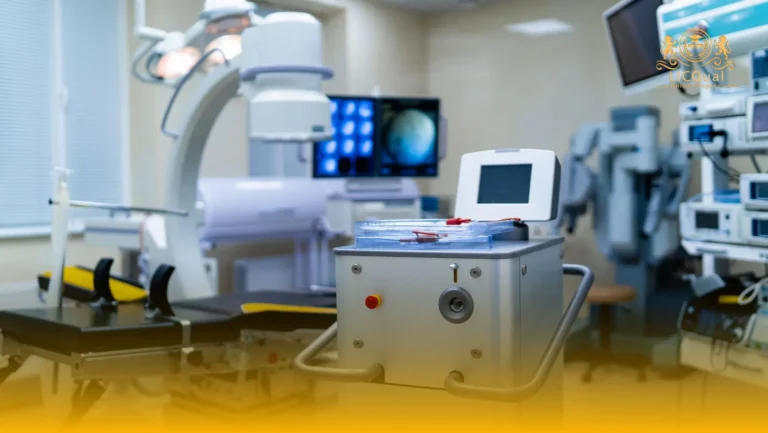The LICQual Level 6 Diploma in Healthcare Crisis Management is a specialised qualification designed for experienced healthcare professionals seeking to advance their skills in managing crises and emergency situations within healthcare settings. This qualification is not intended for fresh entrants; it is tailored for professionals who wish to enhance their career prospects, broaden their knowledge, and strengthen their Continuing Professional Development (CPD).
Learners will gain advanced expertise in identifying, assessing, and managing critical incidents in healthcare, including pandemics, natural disasters, operational failures, and other emergencies. The course equips learners with the skills to develop robust crisis management plans, implement effective response strategies, and maintain continuity of care while ensuring patient safety and compliance with regulatory standards.
Centres delivering the LICQual Level 6 Diploma in Healthcare Crisis Management must uphold the highest standards of training. This includes employing competent and qualified staff, providing comprehensive and up-to-date learning materials, and ensuring access to the necessary tools and resources. These measures guarantee learners receive both practical guidance and theoretical knowledge in a supportive and professional learning environment.
Ideal for healthcare managers, emergency response coordinators, and senior healthcare professionals, this diploma empowers learners to lead crisis management initiatives, mitigate risks, and enhance organisational resilience. By completing this qualification, learners will be well-prepared to manage complex healthcare emergencies effectively, drive strategic improvements, and contribute to safer, more responsive healthcare services.
Course Overview
Qualification Title
LICQual Level 6 Diploma in Healthcare Crisis Management
Total Units
6
Total Credits
120
GLH
480
Qualification #
LICQ2200780
Qualification Specification
To enroll in the LICQualLevel 6 Diploma in Healthcare Crisis Management, applicants must meet the following criteria:
|
Qualification# |
Unit Title |
Credits |
GLH |
|---|---|---|---|
|
LICQ2200780-1 |
Principles of Healthcare Crisis Management |
20 |
80 |
|
LICQ2200780-2 |
Risk Assessment and Emergency Planning |
20 |
80 |
|
LICQ2200780-3 |
Leadership and Decision-Making in Crises |
20 |
80 |
|
LICQ2200780-4 |
Communication and Stakeholder Management |
20 |
80 |
|
LICQ2200780-5 |
Healthcare Operations and Resource Management in Crises |
20 |
80 |
|
LICQ2200780-6 |
Evaluation, Learning, and Continuous Improvement |
20 |
80 |
By the end of this course, learners will be able to:
Unit 1: Principles of Healthcare Crisis Management
- Understand the fundamental principles and frameworks of crisis management in healthcare.
- Analyse different types of crises, including pandemics, operational failures, and natural disasters.
- Evaluate international standards and best practices for healthcare crisis response.
- Apply crisis management models to enhance organisational preparedness.
Unit 2: Risk Assessment and Emergency Planning
- Conduct comprehensive risk assessments to identify threats to healthcare operations.
- Develop and implement effective emergency and contingency plans.
- Prioritise risks and apply mitigation strategies to minimise impact.
- Monitor and review the effectiveness of emergency planning processes.
Unit 3: Leadership and Decision-Making in Crises
- Develop leadership skills for managing healthcare teams during crises.
- Apply structured decision-making frameworks under high-pressure situations.
- Communicate effectively with staff, stakeholders, and patients during emergencies.
- Promote collaboration, maintain team morale, and ensure operational efficiency in crisis conditions.
Unit 4: Communication and Stakeholder Management
- Identify and analyse key stakeholders in healthcare crisis scenarios.
- Develop and implement effective internal and external communication strategies.
- Manage public relations and media interactions during emergencies.
- Evaluate the effectiveness of communication strategies to improve future crisis response.
Unit 5: Healthcare Operations and Resource Management in Crises
- Plan and allocate staff, equipment, and facilities efficiently during crises.
- Manage operational continuity and ensure patient care under emergency conditions.
- Analyse resource utilisation and implement strategies to optimise performance.
- Develop contingency measures to maintain healthcare service delivery during disruptions.
Unit 6: Evaluation, Learning, and Continuous Improvement
- Conduct post-crisis evaluations to assess outcomes against objectives.
- Identify lessons learned and areas for improvement in crisis management practices.
- Develop strategies for continuous improvement in healthcare preparedness and response.
- Apply evaluation insights to enhance future crisis management planning and organisational resilience.
This advanced qualification is specifically designed for experienced healthcare professionals seeking to enhance their expertise in crisis management and emergency response. The course is ideal for:
- Healthcare managers and senior staff responsible for organisational preparedness and emergency planning.
- Crisis response coordinators and professionals managing healthcare emergencies.
- Professionals aspiring to leadership or executive roles in hospitals, clinics, or healthcare organisations.
- Individuals involved in risk assessment, resource allocation, and operational management during healthcare crises.
- Experienced healthcare practitioners looking to strengthen their Continuing Professional Development (CPD) in crisis and emergency management.
- Professionals aiming to improve patient safety and maintain service continuity during critical incidents.
- Those seeking to develop skills in leadership, decision-making, and communication under high-pressure healthcare scenarios.
By enrolling in this diploma, learners will gain the advanced knowledge, practical skills, and credentials needed to lead healthcare crisis management initiatives effectively, enhance organisational resilience, and improve patient care during emergencies.
To deliver the LICQual Level 6 Diploma in Healthcare Crisis Management effectively, centres must maintain high standards of training, resources, and learner support. The key requirements include:
- Qualified and Competent Staff: Tutors and assessors must hold relevant qualifications in healthcare, crisis management, or emergency planning, and have practical experience in managing healthcare emergencies.
- Comprehensive Learning Materials: Centres must provide learners with up-to-date course materials, guides, case studies, and access to digital tools and resources relevant to healthcare crisis management.
- Access to Technology and Resources: Learners should have access to computers, reliable internet, simulation software, and other tools necessary for practical exercises and assignments.
- Safe and Supportive Learning Environment: Centres should offer classrooms, study areas, or virtual learning platforms that encourage collaboration, engagement, and effective learning.
- Assessment and Quality Assurance Procedures: Centres must implement robust assessment systems, including formative and summative assessments, feedback mechanisms, and monitoring of learner progress.
- Commitment to Continuing Professional Development (CPD): Staff must regularly update their knowledge and skills in healthcare crisis management to ensure high-quality course delivery.
- Compliance with Regulatory Standards: Centres must adhere to all relevant local and national regulations and maintain accurate records of learner progress, assessments, and qualifications awarded.
By meeting these requirements, centres can ensure learners receive a high-quality learning experience, gaining the knowledge, practical skills, and confidence needed to succeed in advanced healthcare crisis management roles.
Assessment and Verification
All units within this qualification are subject to internal assessment by the approved centre and external verification by LICQual. The qualification follows a criterion-referenced assessment approach, ensuring that learners meet all specified learning outcomes.
To achieve a ‘Pass’ in any unit, learners must provide valid, sufficient, and authentic evidence demonstrating their attainment of all learning outcomes and compliance with the prescribed assessment criteria. The Assessor is responsible for evaluating the evidence and determining whether the learner has successfully met the required standards.
Assessors must maintain a clear and comprehensive audit trail, documenting the basis for their assessment decisions to ensure transparency, consistency, and compliance with quality assurance requirements.







